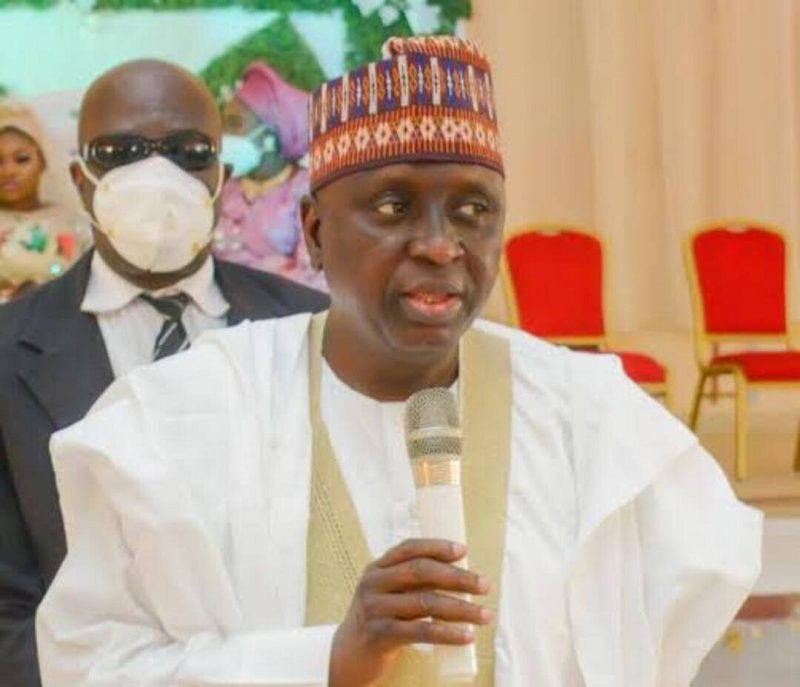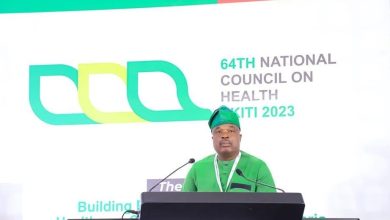NHIA Chairman Advocates for N4bn Mental Health Fund in Nigeria’s 2026 Budget
NHIA Chairman Ibrahim Oloriegbe has urged the FG to allocate at least ₦4bn in the 2026 budget for mental health.
He warned that underfunding worsens Nigeria’s crisis, with 50 million citizens affected.
Senator Ibrahim Yahaya Oloriegbe, Chairman of the National Health Insurance Authority (NHIA), has urged the Federal Government to allocate a minimum of N4 billion in the 2026 budget for a dedicated Mental Health Fund.

Oloriegbe made this appeal in Ibadan on Thursday while delivering the keynote address at the Mental Health Leadership and Advocacy Workshop, organized in partnership with the Africa Centre for Disease Control (Africa CDC) and attended by participants from 19 African countries.
He pointed out that nearly 80 percent of Nigeria’s health resources are currently focused on physical illnesses, resulting in significant underfunding of mental health, despite its vital connection to overall well-being. “There is no health without mental health,” he emphasized, warning that untreated psychological conditions can exacerbate physical ailments and vice versa.
Oloriegbe, who championed the Mental Health Act 2023 during his tenure in the 9th Senate, expressed concern over the law’s incomplete implementation. He called for the establishment of a dedicated Mental Health Department within the Federal Ministry of Health to operationalize the Act and improve access to services, particularly for vulnerable groups.
“To effectively implement the Act, I urge the urgent establishment of a Mental Health Department at the Federal Ministry of Health. I also advocate for the creation and proper funding of a Mental Health Fund, with at least N4 billion allocated in the 2026 budget,” he stated. He added that these measures would help address the rising cases of substance abuse, depression, and suicide among young people.
The NHIA chairman stressed that mental health is not just a medical issue; it also impacts national productivity, economic growth, and security. “When citizens are mentally unwell, their ability to contribute positively to society is impaired, and the repercussions are felt across all sectors,” he said.
Nigeria currently faces a serious mental health crisis, with approximately 50 million people, about one in four Nigerians, living with a mental health condition. Yet, fewer than 10 percent receive treatment. The country has fewer than 300 psychiatrists for a population exceeding 220 million, yielding just 0.09 psychiatrists and 0.07 psychologists per 100,000 people, according to World Health Organization (WHO) data.
Stigma surrounding mental illness further complicates the issue, as many attribute these conditions to spiritual causes or witchcraft, discouraging individuals from seeking professional help.
The Mental Health Act, passed in January 2023 to replace the outdated Lunacy Act of 1958, provides a modern legal framework for care and patient protection. However, with less than 3 percent of the national health budget allocated for mental health services, implementation remains stalled. Overall, Nigeria allocates less than 15 percent of its budget to healthcare, below the African Union’s recommended 15 percent, and there is no specific allocation for mental health.
Oloriegbe praised the Africa CDC, University College Hospital (UCH) Ibadan, and other partners for their investment in training and leadership to enhance mental health services across the continent. He pledged continuous collaboration to ensure the sector receives the recognition and resources it needs.
“The time to act is now,” he declared. “Addressing mental health means addressing the very foundations of national stability and progress.”



